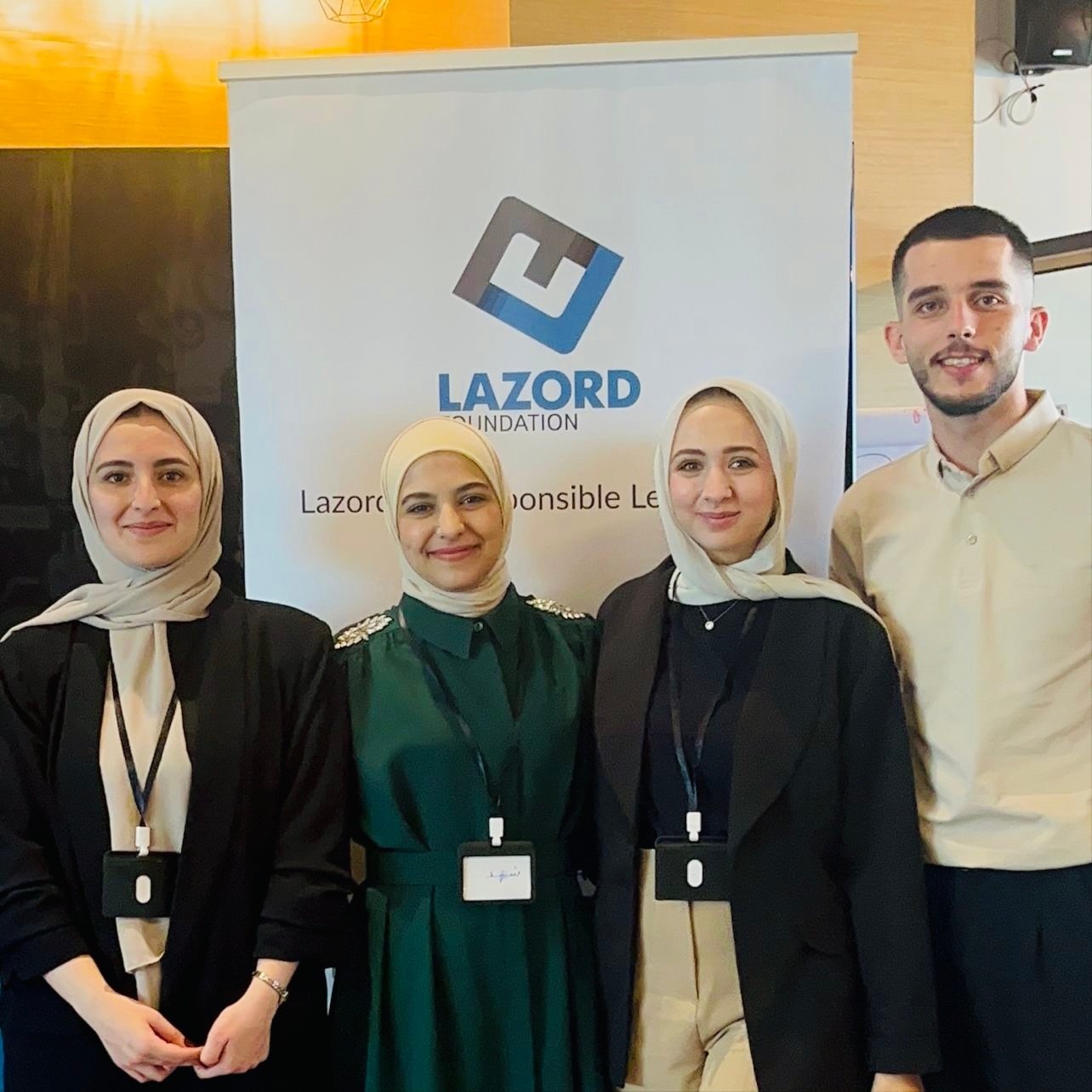Submitted by Malhis on

This perspective was contributed by Shahd Alayed, Lazord Fellow and New Tactics in Human Rights MENA Training Assistant.
My Lazord Fellowship Research Journey in Jordan's NGO Landscape
Embarking on the Lazord Fellowship, a transformative program that combines professional growth with civic engagement, has been a remarkable journey that has allowed me to explore Jordan's dynamic NGO landscape. The program's holistic approach of offering job placements, mentorship, training, and a research paper requirement gave me the opportunity to explore a topic that deeply resonates with me: financial sustainability within local NGOs in Jordan.
Setting the Stage: The Lazord Fellowship Experience
Lazord Fellowship, an esteemed program operating in Jordan, Tunisia, and Egypt, aims to empower recent graduates by providing them with hands-on experience in the civic sector. I was among the fortunate 12 selected participants for the Jordanian cohort. Early on, our mission was to choose a research topic about a community issue in our countries that we believe is critical.
Exploring the Research Focus
My team and I, as newcomers to the domain of NGOs and civil society, witnessed an unsettling trend: NGOs closing or altering their activities to include aspects that didn't align with their mission. Our curiosity led us to dig deeper into this issue. Through extensive research, we identified a key contributing factor: financial unsustainability due to the drying up of funding sources caused by evolving donor priorities. This motivated us to investigate the critical topic of financial sustainability in the Jordanian context.
Unmasking Financial Sustainability Challenges
Our research illuminated the harsh reality faced by local NGOs in Jordan. These organizations, though crucial to social and economic development, are struggling with vulnerabilities arising from unpredictable and limited funding sources. The legal environment also poses constraints, with laws demanding strict registration and approvals for receiving foreign funding. This issue was amplified during COVID, where only the most resilient organizations survived. This magnified the importance of considering financial sustainability. This backdrop sets the stage for a challenging landscape where maintaining mission focus amid funding fluctuations becomes a true struggle.
Aim and Questions: Seeking Solutions
Our research aimed to identify indicators for assessing financial sustainability, focusing on three themes: strategic vision and leadership, income-generation capability, and financial administration capability. We aimed to discover best practices that enhance an organization's financial sustainability and to understand the challenges local NGOs face in their journey towards sustainability. With these outcomes, we intend to empower local NGOs and provide them with practical approaches that can inspire them.
Mixed Methodology: A Comprehensive Approach
To gather data, we employed a mixed data collection approach that combined quantitative and qualitative methods, ensuring a robust understanding of the landscape. We surveyed 30 local NGOs across 3 governorates: Amman, Zarqa, and Irbid. Later, based on the survey results, we selected 3 organizations with high indicators to participate in in-depth interviews, allowing us to uncover the path towards financial sustainability. The survey responses revealed trends, while the interviews added depth and context to the data.
Sharing Insights and Recommendations
Our discussions revealed crucial areas that require attention, shedding light on the complex dynamics of financial sustainability within Jordan's NGO sector. Strategic planning, a fundamental component of effective financial management, emerged as a significant driver. While many organizations had formulated strategic plans, the challenge lay in their successful execution and engaging staff and stakeholders in writing it. Addressing this challenge necessitates concerted efforts to bridge the gap between strategic intent and operational implementation, ensuring the realization of organizational objectives.
Diversification of income, a wise response to funding inconsistency, emerged as a pivotal area for improvement. Establishing a diversified revenue stream acts as a safeguard during periods of financial uncertainty. The research underscores the imperative for NGOs to proactively explore diverse funding sources and adopt strategic fundraising initiatives. This proactive approach can considerably strengthen their financial resilience, making them more resilient against external economic disruptions.
The financial landscape showed a subtle combination of strengths and areas requiring further improvement. While NGOs demonstrated adeptness in cash flow management and auditing practices, the strong need for reliable accounting systems was evident throughout our study. This underscores the significance of accurate and detailed financial reporting mechanisms, facilitating well-informed decision-making processes.
Concluding Remarks
The Lazord Fellowship gave me a special way to understand real-life challenges, and diving into Jordan's NGO scene made me realize the tough challenges these groups face. My work in this important study was more than just academic; it was an eye-opening experience that revealed the complexities of ensuring financial stability for nonprofits. With what we learned, I hope to add to discussions about financial sustainability, helping local NGOs not just survive, but succeed in their efforts to create social change and strengthen communities.


